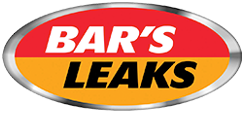Leaking coolant, engine oil and transmission fluid can be a big headache. If your fluid levels get too low, your vehicle won’t perform properly, and you can even cause permanent damage. But another less talked about negative consequence of leaking fluids is the pollution it causes to the environment.
This is a tremendous problem, even though it doesn’t make headlines. In fact, Puget Sound (in Washington State) is being threatened by the influx of leaking automotive lubricants and chemicals to the point where it’s natural beauty and heritage is at risk. On an average day, an estimated 140,000 lbs of toxic chemicals ranging from petroleum to polychlorinated biphenyls (PCBs) enter Puget Sound.
Here at Bar’s Leaks, we sell a wide range of products designed to stop your fluid leaks, so you can get the best performance out of your vehicle while protecting the environment. Nobody has time for leaks, and certainly nobody has time for the environmental impacts of leaks.
Harmful for the Environment
Automotive oils and fluids are engineered to lubricate, cool and provide pressure depending on their function. Unfortunately, these fluids are also harmful to the environment, and when they leak, they contaminate the ground, air and waterways. They are also hazardous to plants and animals and can even be dangerous to humans. Here are some of the problems with common automotive fluids:
- Engine Oil: Leaking oil often gets vaporized when it hits hot engine components like your manifold or exhaust. If you’ve ever had an engine oil leak, you know the dark smoke that is created when it burns. The harsh smell is just one indicator of how harmful leaking oil is to the environment. When oil gets into the groundwater and affects foliage and wildlife, real ecological impact can be seen and observed.
- Coolant: The coolant in your radiator contains ethylene glycol, a chemical that can cause serious damage to the nervous system of humans and animals in moderate to high exposures. While modern coolants contain bitter-tasting agents (behavior deterrents) to keep pets and children from drinking them, any coolant leaks can work their way into the ground and waterways, causing serious damage to plants and animals.
- Transmission Fluid: Transmission fluid is typically red and is thicker than engine oil (due to higher viscosity). As a result, it is tough to clean up and often stays on the ground for a long time. As the fluid breaks down in the sun, hydrocarbons are released into the air. These chemical compounds can affect breathing in humans and contribute to air pollution that affects everyone.
At the first sign of an engine oil, transmission fluid or coolant leak, we strongly suggest you react. An ignored leak ever gets any better, and could wind up being a much bigger problem that it should. Don’t wait until your leak is big enough to cause a major spill or damage to your vehicle. Our award-winning Bar’s Leaks products are designed to stop small to moderate leaks and can keep your leaks from getting worse.
Check out our catalog and discover all of our cooling system products, engine oil products and transmission fluid products. Do your part by stopping leaks not only to make it easier on your wallet and busy life, but also before they harm the environment.

